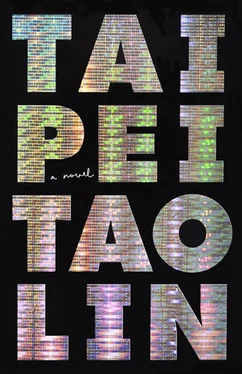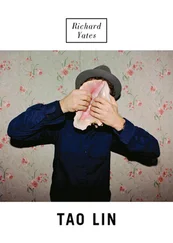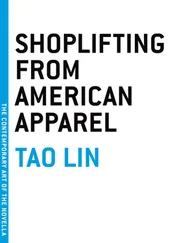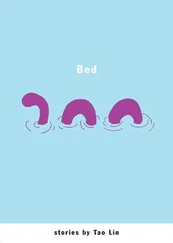“Oh, really?” said Laura reciprocating his tone.
“Let me help you,” said Paul lifting the giant plastic red bowl toward Laura, who chose and bit a piece, then moved backward a little, with a playful expression, nodding and smiling, before turning around and walking away, reappearing around twenty minutes later at a near distance, moving directly, as if after a search, toward an inattentive Paul, seated in the same chair as earlier, not apparently doing anything. Before he could say anything about Funyuns, or form any thoughts, Laura had told him her full name, which she wanted him to memorize, quizzing him on it twice — crudely, functionally — before abruptly walking away.
Around midnight an aimlessly wandering Gabby, appearing lost in her own kitchen, stopped in front of Daniel and said “you have a nose ring,” with a slightly confused expression to Daniel, who confirmed he did. Gabby, a foot and a half shorter than Daniel, stared up at him a few seconds before saying something that, Paul thought, conveyed she earnestly believed nose rings were objectively bad. She asked where Daniel was from and said “oh, that makes sense, then,” appearing visibly less tense, when Daniel said San Francisco.
Paul, staring at Daniel’s left profile, said “I just realized you look like Hugh Jackman.”
“He looks like Richard Tuttle,” said Gabby.
“I don’t know who that is,” said Daniel.
Gabby said Richard Tuttle was a famous artist. Daniel said when he was young his father only brought him to galleries and museums whenever they went anywhere. Paul heard someone say “sculptor.” Someone who didn’t know Daniel drunkenly said “he got the nose ring so people won’t think he’s Hugh Jackman” to Paul at close range. Gabby mentioned another artist Daniel didn’t know and Paul began to sometimes say “you’re too mainstream for us” in a loud, sarcastic voice while staring at Gabby — thinking that, by underscoring that he and Daniel were obviously too mainstream for her, he was sincerely complimenting her knowledge of the art world — who ignored him easily, with no indication of any awareness of his presence. When Gabby finally looked at him, seeming more confused than agitated, Paul sarcastically sustained a huge grin, which Gabby stared at blankly while appearing to be thinking, very slowly, due to alcohol, about what, if anything, she should do about what was happening. After around five seconds she walked away with a slight, momentary wobble. Kyle appeared around fifteen minutes later and said “leave” to Daniel, who was grinning about something else.
“Huh?” said Daniel.
“Leave,” said Kyle.
“Are you serious?”
“Yes,” said Kyle, and Paul realized, with a sensation of low-level epiphany, that Gabby, offended by the nose-ring encounter, must have forced Kyle to tell Daniel to leave. Paul said this aloud a few times, to seemingly no one, then asked why Kyle was “being mean.” Daniel said he would leave after he finished his drink and Kyle said “that’s fine” and walked away.
“Jesus,” said Paul. “Gabby hates nose rings.”
“I didn’t think she was angry when we talked,” said Daniel.
“You’re probably benefiting this party the most out of anyone,” said Paul. “You’re standing in one place, occasionally saying something witty, causing people passing by to laugh. You’re not even eating anything.”
“I planned to go to another party anyway,” said Daniel.
Almost half the party, thirty minutes later, was on the wide sidewalk outside the apartment building, grinning drunk-enly or looking at one another with openly bored or neutral expressions, waiting for directions to the other party. Paul, who was grinning uncontrollably, had approached groups of acquaintances asking if they wanted to go to a different party while a cheerful-seeming Daniel, standing in place in the kitchen, sometimes assumed the role of an unruly tyrant, saying things like “get every single person” and “we aren’t leaving until you get every person.” Paul had wanted to tell Daniel he shouldn’t want so much from life but couldn’t remember the stock phrase for “don’t want too much in life” and, after a long pause, had said “you shouldn’t want so much in life.” Mitch had repeatedly held shots of tequila toward Paul, who drank two and, at one point, entered the small room where Kyle and Gabby slept and interrupted Gabby and Jeremy and Juan by asking if “anyone” wanted to go to “a different party,” aware he was unaffected, due to alcohol, by Gabby’s presence.
Someone said it probably wasn’t a good idea to stand “in a giant mass blocking the entire sidewalk” in front of the party they’d just abandoned, and the group of twelve to fifteen people began walking in a direction, led vaguely by Daniel, who was talking into his phone. Laura slung an arm around Paul’s shoulder and said “Paul” loudly and that she was going to slap him if the party wasn’t good and asked for a cigarette. Paul said he didn’t smoke and Laura walked away. After around ten blocks Daniel moved his phone away from his head and told Paul — and three or four other people within range — that they’d walked in the wrong direction. Paul said someone needed to make an announcement because the group, which wasn’t stopping, was too large for information to spread naturally to itself. “We walked the wrong way,” shouted Mitch. “Stop walking. We walked the wrong way.”
People scattered a little, on the sidewalk, looking at their phones, seeming confused but surprisingly calm, except Laura’s friend Walter, who was moving an unopened Red Bull Soda in arcs through the air, as if wielding it, while sometimes saying “what’s the address of the party?” to seemingly no one, with an agitated expression, then abruptly walked away, followed by Laura.
“Wait,” said Paul, and hit her shoulder with a chopping motion while intending to touch it lightly. Laura briefly turned only her head — she was frowning — while continuing to walk away. Paul went with Daniel and Mitch to the other party, which they found after around forty minutes, when everyone else had gone home, to bars, or sheepishly back to Kyle and Gabby’s party.
• • •
When Paul woke, the next afternoon, Laura, 28, had already friended and messaged him on Facebook. She had a MySpace page, as an unsigned rapper, with six songs, including one whose music video, in which she rubs pizza on her face and feeds pizza to her cat, Paul remembered feeling highly amused and impressed by when he first saw it, when it had “gone viral,” to some degree, one or two years ago. In the library, that night, Paul discovered Gabby had defriended him on Facebook and was surprised that Kyle, his closest friend the past two years, except the nine months he was with Michelle, had also defriended him and that both had unfollowed him on Twitter.
The next night, outside Taco Chulo, a Mexican restaurant in Williamsburg, Laura apologized for being late and said she’d gotten lost on the walk from her apartment, eight blocks away. Paul asked if she wanted to eat at Lodge, which had “good chicken fingers,” or Taco Chulo, as they’d previously agreed, and she seemed confused. In Taco Chulo a waiter said to sit “anywhere.” Paul watched Laura move very slowly, in a kind of exploring, it seemed, as if through darkness, to arrive at a four-person table, where once seated, with a slightly desperate expression, not looking at Paul, she focused on signaling a waiter. Paul also focused on signaling a waiter. Laura ordered a margarita, then sometimes turned her head 90 degrees, to her right, to stare outside — at the sidewalk, or the quiet street — with a self-consciously worried expression, seeming disoriented and shy in a distinct, uncommon manner indicating to Paul an underlying sensation of “total yet failing” (as opposed to most people’s “partial and successful”) effort, in terms of the social interaction but, it would often affectingly seem, also generally, in terms of existing. Paul had gradually recognized this demeanor, the past few years, as characteristic, to some degree, of every person, maybe since middle school, with whom he’d been able to form a friendship or enter a relationship (or, it sometimes seemed, earnestly interact and not feel alienated or insane). After finishing a second margarita Laura became attentive and direct, like she’d been at the party, when she had been probably very drunk, Paul realized.
Читать дальше












